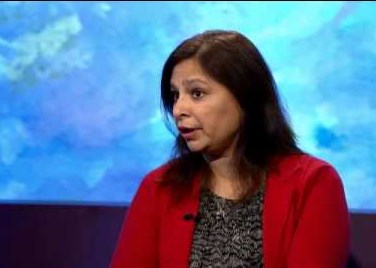Last week, I told Tyler’s story, a fictionalized account of life to the age of 30 of “a prototypical adolescent offender in saąúĽĘ´«Ă˝,” highlighting “the most common risk factors that affect Canadian youth who become involved in crime.” But the whole point of the Public Safety saąúĽĘ´«Ă˝ report from which Tyler’s story comes is that the significant loss to society that Tyler represents — not just economic loss, but loss of human potential and social wellbeing — is, to a fair extent, preventable.
Brain development in infancy is astonishing. According to the Center on the Developing Child at Harvard University, a million connections are made in the brain every second — yes, every second — in the first three years of life. The centre notes: “As early experiences shape the architecture of the developing brain, they also lay the foundations of sound mental health.”
The late Clyde Hertzman, founding director of the Human Early Learning Project at UBC, called the way in which social and emotional experiences shape the brain “biological embedding,” noting in a report he led for the World Health Organization in 2007 that it influences health and development over the long term.
So not surprisingly, then, supporting healthy brain development early in life is crucial for both mental and physical well-being throughout life. Let’s look at some early interventions that were not included in the Public Safety saąúĽĘ´«Ă˝ report, but that might have had an even greater impact on Tyler’s story.
In a recent presentation at the Atlantic Summer Institute in Prince Edward Island, Dr. Chaya Kulkarni discussed the work of the Infant Mental Health Promotion initiative at the Hospital for Sick Children in Toronto, of which she is the director. Not only are the first three years of life key, she noted, but the mother’s emotional state and level of stress during pregnancy can affect the emotional, behavioural and cognitive outcomes of the child she is carrying.
She emphasized that relationships are foundational to achieving the tasks of childhood, and that secure attachment between the infant and the caregiver (usually the parent) is key, while isolation, indifference and neglect are traumatic. Dr. Kulkarni also stressed that infants can and do experience trauma, that it is possible to detect atypical developmental trajectories in the first six months of life, and that children do not outgrow their early mental-health problems.
In recent years, there has been a growing recognition of the traumatic mental and physical health impacts of adverse childhood experiences, known as ACEs. These are things such as physical and emotional abuse, neglect, caregiver mental illness, household violence and poverty, effects we can see at work in Tyler’s story. Such experiences are very stressful to infants and young children, and the more ACEs they experience, the greater the impact. Such prolonged stress is toxic, and “can have a cumulative toll on an individual’s physical and mental health-for a lifetime,” the Harvard Center notes.
So obviously we need to reduce the number of ACEs, and the evidence shows that there are several key things we need to do in the early years. The focus must be on the entire family, and on reducing the level of stress within the family. This includes reducing poverty, which is why the failure to eliminate child poverty, as the House of Commons pledged to do by 2000, is such a disgrace, a massive failure of our supposedly compassionate society that acts against our long-term interests.
Beyond that, we need to identify parents and infants that need support in becoming caring and attentive parents and developing strong attachment and positive relationships, and where necessary we need to be able to intervene to protect vulnerable children. This requires a significant investment in parent and infant health, because Kulkarni reports that there is no good system for protecting and improving infant mental health in saąúĽĘ´«Ă˝.
As the Harvard Center notes: “By improving children’s environments of relationships and experiences early in life, society can address many costly problems, including incarceration, homelessness and the failure to complete high school.” What a difference that might have made to Tyler’s story.
Next week I will return to the Public Safety saąúĽĘ´«Ă˝ report, and the three child and youth interventions discussed in that report.
Dr. Trevor Hancock is a retired professor and senior scholar at the University of Victoria’s School of Public Health and Social Policy.



